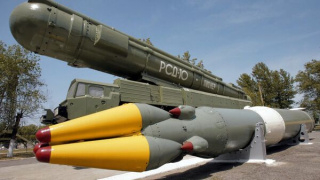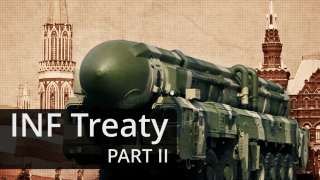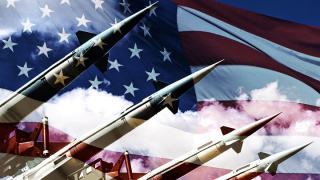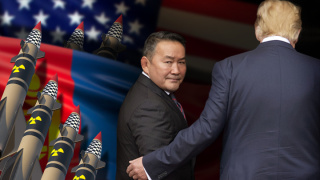US Withdrawal from INF Raises Nuclear War Risks
Washington’s decision to withdraw from the Intermediate-Range Nuclear Forces (INF) Treaty and Russia’s decision to suspend its participation in the treaty have put the nuclear threat at its highest since the Cuban missile crisis, former Energy Secretary Ernest Moniz and former Senator Sam Nunn said in a pre-released essay from the September/October Foreign Affairs.
"The United States and Russia are now in a state of strategic instability; an accident or mishap could set off a cataclysm. Not since the 1962 Cuban missile crisis has the risk of a U.S.-Russian confrontation involving the use of nuclear weapons been as high as it is today. Yet unlike during the Cold War, both sides seem willfully blind to the peril," they write.
"Even after decades of reducing their arsenals, the United States and Russia still possess more than 90% of the world’s nuclear weapons, over 8,000 warheads, enough for each to destroy the other, and the world, several times over," the authors note.
"For a long time, both sides worked hard to manage the threat these arsenals presented. In recent years, however . . . Arms control has withered, and communication channels have closed, while outdated Cold War nuclear postures have persisted alongside new threats in cyberspace and dangerous advances in military technology (soon to include hypersonic weaponry, which will travel at more than five times the speed of sound)," Moniz and Nunn write.
"Russia can disrupt geopolitical currents in areas vital to the interests of the United States, including Europe, the Middle East, Asia, and the Arctic. Further clashes and crises are not just possible but probable. Both sides need to start planning now to make sure that any such confrontations do not spiral out of control or, better yet, to prevent them from occurring in the first place," they emphasize.
INF: from inception to suspension
The INF Treaty, signed by the Soviet Union and the United States on December 8, 1987, took effect on June 1, 1988. It applies to deployed and non-deployed ground-based missiles of intermediate range (1,000-5,000 kilometers) and shorter range (500-1,000 kilometers). Washington on many occasions had accused Russia of violating the accord, but Moscow vehemently dismissed all accusations and, in its turn, expressed grievances over Washington’s non-compliance.
On February 1, 2019, US President Donald Trump and US Secretary of State Michael Pompeo announced the suspension of Washington’s obligations under the INF starting February 2. Washington is determined to withdraw from the treaty in six months unless Russia returns to "real and verifiable" compliance.
On February 2, Russian President Vladimir Putin announced that Moscow was also suspending the agreement. He handed down instructions to refrain from initiating talks with Washington on the issue and stressed that the US needed to show willingness for an equal and substantive dialogue. Putin signed a decree suspending Moscow’s compliance with the Treaty on March 4. On July 3, the head of state signed the decree into law after it had been approved by both houses of parliament.
On August 2, the Russian Foreign Ministry officially confirmed that the INF Treaty had been terminated at the initiative of the United States.






